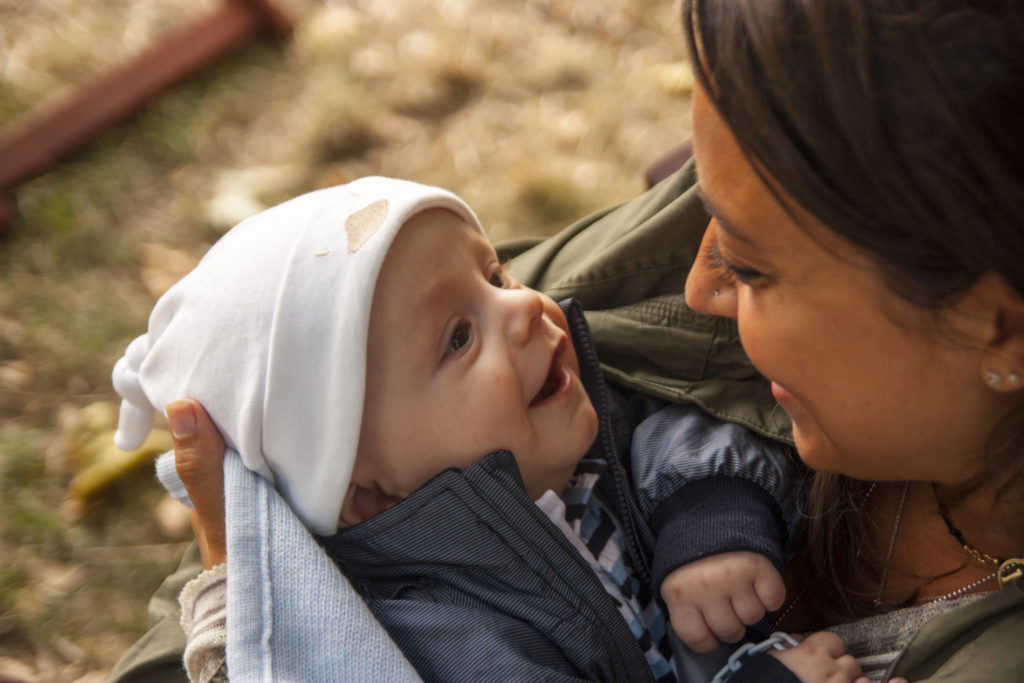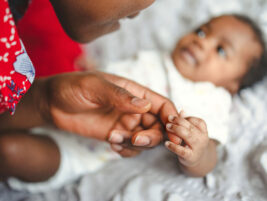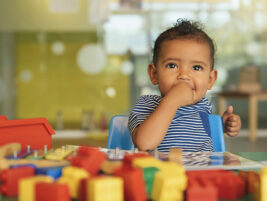In this article I want to share with you my own experience of what happened and is happening when a large system, such as a whole society within a country – in this case Latvia – undergoes a transition from one form of political structure and ideology to another form, that is, from a totalitarian/communist run system back to a democratic system. I think that this applies to almost all the exSoviet Republics. It also has parallels in other countries that are run by rigid governments, e.g. the transitional social changes taking place in the world’s largest nation – China.
I will describe two aspects that are very important to understand when dealing with a situation such as the above.
Firstly, what are the effects of a specific political system and ideology on people’s mental health. Secondly, the complex dynamics of attempting to introduce change.
I will start by briefly sharing my own experience of observing and learning about the two distinct “national personality types” that emerged in a situation like this. Towards the end of World War II large numbers of Latvians fled from the Communists and settled as refugees in the West. Our family was one of those refugee families that settled in Canada in 1950, and therefore I grew up in a democratic system. In contrast, several of my first cousins remained in Latvia and grew up under Communism. When I first returned in 1989 to the city where I was born – Riga, Latvia, just after glasnost and perestroika, it was a very emotional experience. For 45 years I had had no contact with my cousins. When I now got to know them, it struck me that there were some distinct differences between us, even though we were from the same blood, spoke the same language and shared the same cultural heritage. Now we seemed to be subtly different. I have heard the same comments from some of my German colleagues – the difference between East and West Germany.
As a psychoanalyst, my interest has always been in the personality formation process. Here was an opportunity to observe and learn firsthand – what were the personality differences and what caused them. It really demonstrated to me, how aside from the influences of the immediate family on the development of a child’s personality, a political system with its specific ideology can also have a very marked effect on the personality. On top of this dynamic is the fact that Communist rule had the mandate to indoctrinate its people in every possible way into the Communist ideology, and force it on them. I realize that one always has to be careful when making generalized comments to acknowledge that there can be exceptions to these situations.
For example, when I visited a medical museum in Riga in 1990, I saw posters from the 1950’s where young mothers were urged to place their babies in daycare, where they would be looked after by “well trained child care workers”, so that the mothers could return to work and be productive Soviet citizens. I am also sure that a lot of mothers instinctually resisted this. There was obviously no concept of the crucial part that attachment plays in the formation of a healthy personality in a child. Uniformity and equality was the expected norm. If we look at Western societies, there is the marked contrast, in particular the U.S., where independence and autonomy have always been highly valued or even over-valued. This has its own problems – everyone looks out for themselves and a sense of entitlement and materialism takes over.
The Communist ideology imposed a view of man primarily as a biological/ mechanical entity, and as part of a mass to be controlled and suppressed, rather than as an individual in his or her own right, who functions as a complex psychological being who has the right to make choices. This specific mechanistic and dehumanising view of people significantly affected their personal development as well as social dynamics and systems. It also affected the field of psychology and prevented the development of psychodynamic psychotherapy. (Rothstein, 1991). As well it affected health care delivery in general.
When I first went to Latvia and presented a paper on psychodynamic psychotherapy, a journalist asked me to explain the field of psychotherapy and psychoanalysis. My answer was that it is a field of science and a treatment method whose aims are to help an individual to think and speak more freely, to behave more freely and in general to feel free from the psychological constrictions. The journalist’s answer was “This sort of thing was strictly taboo in our society”.
Forty or more years of a terroristic and severely repressive political regime had produced several psychological changes, including:
(a.) A damaged basic trust. As we know, trust is crucial for the healthy functioning of a person. It is no surprise that in a political system that used spying and betrayal as its main tools of control, extending even into the privacy of the family unit, that people’s natural state of mind would become a constant mistrust and even paranoia. No one dared to speak the truth, or they would risk being imprisoned, or end up as the political dissidents did – locked up in psychiatric hospitals.
(b.) Another personality casualty was a severely lowered self-esteem and selfconfidence. Again, when people are constantly being abused, terrorized, deceived and repressed at every level of existence, the end result is a severely damaged self-confidence and self-esteem, which manifest themselves in difficulty in trusting one’s opinions, taking initiative, and feeling respect for one’s own needs.
(c.) Further to this it produced a state of apathy, general passivity and depression. With the removal of free choice and a lack of ability to participate in achieving personal goals, creativity and initiative wither and die. A state of apathy and hostility sets in. People no longer saw any purpose in improving their life, when they knew that the State could step in at any moment and destroy it. (Henckel, 2006)
The question that arises is – what effect does all of that have on child rearing and family dynamics. Further to that, the lingering distrust and the hesitancy in taking initiative and then ownership of new projects are the severe side effects of emerging from that repressive political system.
This brings us to the other psychological phenomenon – the DYNAMICS of CHANGE. At the conscious or logical level we welcome change and want to incorporate new ideas and new ways, but often there is a strong resistance to giving up the familiar, even though it may not serve us well. For those of us who are psychotherapists or psychoanalysts we know it well from our clinical practices how hard it is to change deeply ingrained patterns. Doctrines that we have been exposed to for decades as the right or the only true ones cannot be shed simply and quickly – whether these are the norms of the “family doctrines” in our own family of origin, or whether they have been imposed on us by “Big Brother”, the political system. It will take a generation or more to achieve effective change.
Looking at the dynamics of change from a broader perspective, it would be true to say that no matter which part of the world we’re in, the dynamics are fairly similar. From a sociological and psychodynamic point of view – when change is introduced and a period of transition takes place, there is almost always a resistance that is encountered. This is a universal phenomenon. Even though logically and consciously we welcome change with enthusiasm and want to see the old being replaced by the new, there is a strong undercurrent of resistance and resentment to it. The familiar seems safer and easier to maintain, even though we may realize that it is not serving us effectively. I experienced this first hand when I became involved with a number of projects between the West and the newly democratized countries of the ex-Soviet Union. The problem, I feel, stems from both sides – the providers and the receivers. When the process is rushed and handled superficially and naively, even with the best of intentions on both sides, it bogs down after a while. Only a patient and thought through step-wise approach can effectively succeed.
I feel gratified in my frequent trips to Latvia to see that the younger generation has been able to free themselves from the psychological trauma that their parents were subjected to. However, they still live in a system that has not fully undergone the transition. The enthusiasm and appetite of our Latvian colleagues for something new has been very strong. However, when it came to digest the new information and the new approaches and then to metabolize and incorporate them, the projects frequently bogged down. Thus what we learned was that if there was not a continuous follow-up (by the foreign colleagues) built into the projects, they would falter.
Another dynamic that plays a part is the following. When we look at the concept of “best practices”, we have to be careful not to “parachute” these ideas and approaches into a new setting whose context may be very different. It is a bit similar to the human body rejecting a foreign substance as part of its defensive system. As a lot of my Western colleagues have agreed, this was a problem because of our own naivety and missionary zeal.
Interestingly, in the context of the overall mental health care delivery system where change and the introduction of new approaches worked better was the field of infant and child mental health. There had been already many younger Latvian colleagues who had been interested in new ideas. They had been attending seminars and training groups run by Western colleagues. This encouraged all of us to organize the first ever WAIMH Regional Conference behind the former “iron curtain”. It took place in Riga in 1994. The theme was “Infant and Child Care in a Rapidly Changing Social/Political/ Economic System”. Over 1000 participants came form Eastern and Western countries. My wife and I were able to get some of the top professionals internationally who were researchers and clinicians in that field, including Daniel Stern, Serge Lebovici, Robert Emde, Tuula Tamminen, Joy Osofsky, Sarah Landy, Joan RaphaelLeff and many others. This conference acted as a further stimulus towards change, bringing the East and the West closer together. A number of significant programs emerged and were supported actively by the Minister of Child and Family Affairs of Latvia. As a consequence the WAIMH Affiliate was formed a few years ago. Together we organized another successful WAIMH Regional Conference in Riga in 2007. Thus significant change has started and is continuing.
References
Henckel, Florian (2006). “The Lives of Others”. German film.
Rothstein, A. (1991). Editor, “The Moscow Lectures on Psychoanalysis”. International University Press Inc.
The above text was presented as a lecture at the 12th Congress of WAIMH in Leipzig June 30 – July 3 2010: Workshop: The process of change in the provision of mental health care for infants and children in the transition from a communist regime to a democratic system. Tuters K. (Canada), Blaua Z. (WAIMH – Latvia, Latvia), Salaka S. (MommiesClub, Latvia), Sebre S. (University of Latvia, Latvia).
The Complex Dynamics of Change when a Large Social System is in Transition
Authors
Tuters, Kaspars,
Department of Psychiatry,
University of Toronto,
Member, Canadian Psychoanalytic Society,
Canada








